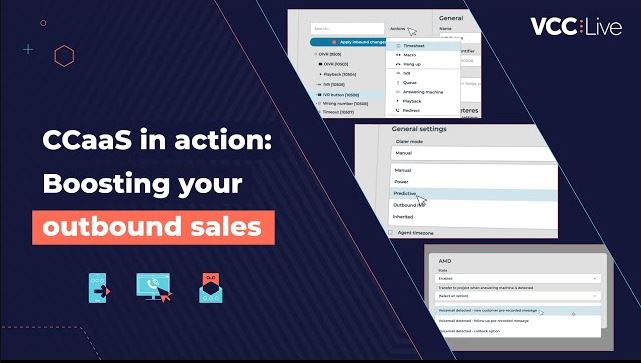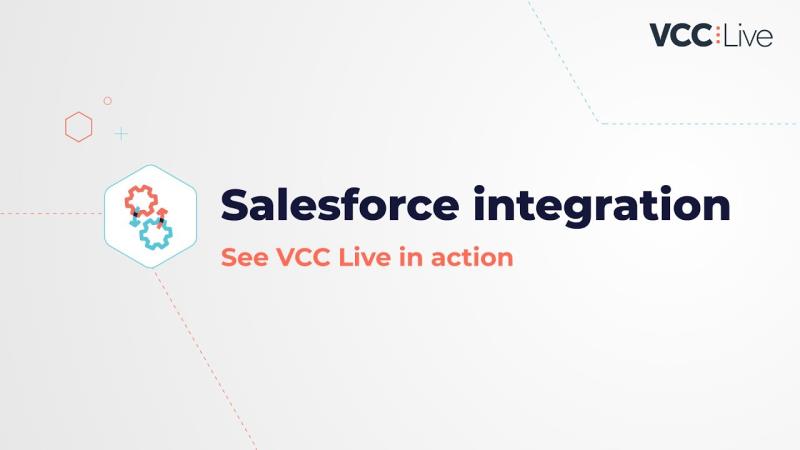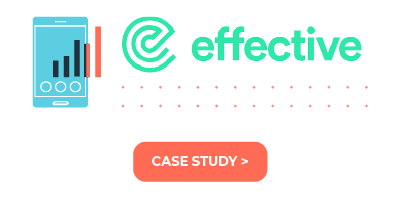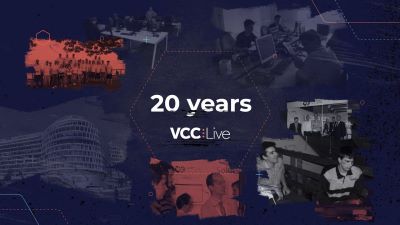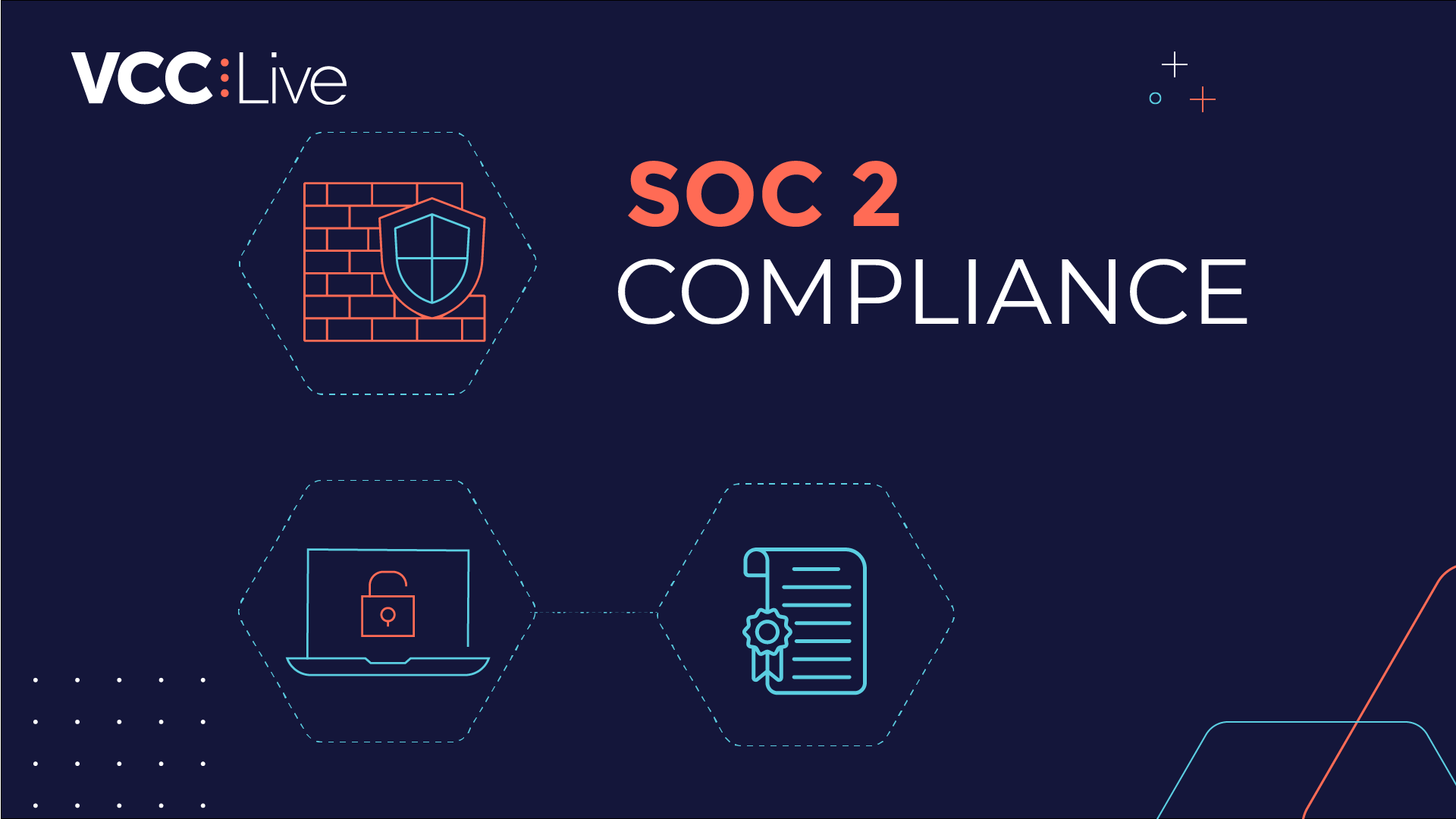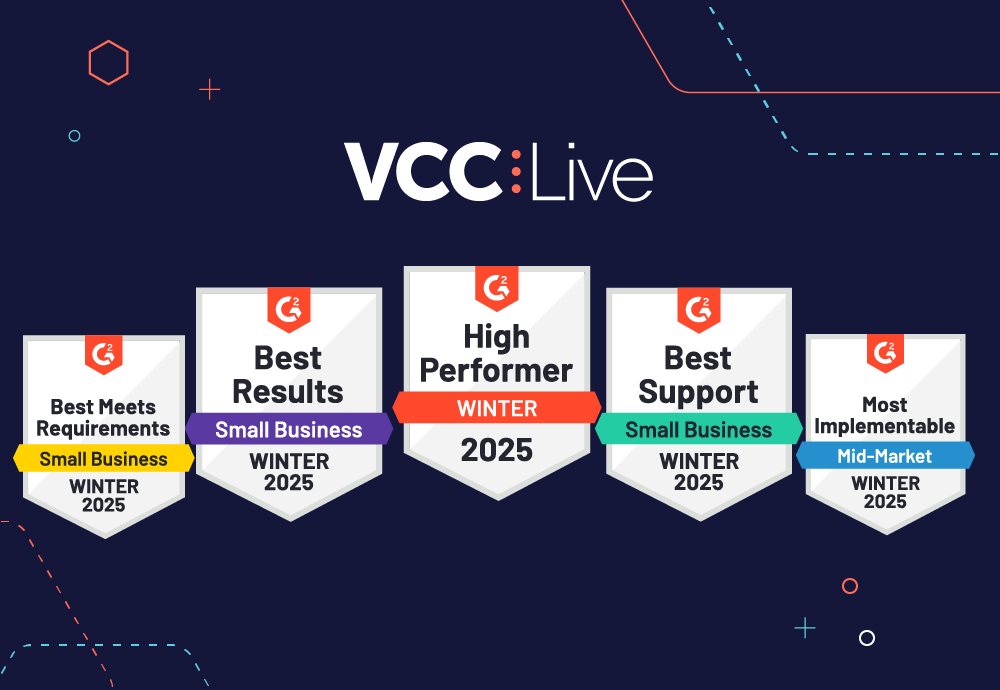IVR or Interactive Voice Response allows you to automate some of the customer communication in your contact center. Despite the obvious savings in time and money, some companies may still be reluctant to use it due to the lack of human contact. Of course if used correctly, there’s a lot of value IVR can bring to your business.
Having worked with various companies who successfully implemented IVR technology in their contact center, here are some facts, top benefits and mistakes to avoid based on my conversations with them.
What is an IVR?
An IVR (Interactive Voice Response) is an automated telephony system that can interact with your callers, gather information from them, or route calls to the appropriate agents. The IVR can play pre-recorded messages with a list of options to choose from.
Additionally, it allows callers to interact with
menu options either by dialing or via speech recognition technology. This
enables them to be routed to departments or access information specifically
dealing with their questions or issues.
With a well-planned IVR
strategy, your company can provide better customer experience, increase
efficiency and as a result improve customer satisfaction. By using IVR, your
contact center can better manage high call volume by quickly giving information
to customers with simple questions, therefore, saving your human resources.
When it comes to more complex queries, a well-designed IVR system can help
connect customers with the most suitable contact center agent.
How does it work?
Used in combination with ACD (Automatic Call Distribution) technology, IVR is capable of routing calls through a specified path, depending on the callers’ input. It can play pre-recorded messages, or route the caller to the agent most suitable for the caller’s query.
The caller’s dial entries are processed by Dual-Tone Multi-Frequency signals (DTMF). DTMF signals then communicate the caller’s responses to the IVR system, based on which the IVR system communicates options to the caller. IVR software that is capable of processing client’s verbal responses is processed through Natural Language Processing (NLP). NLP is a specific type of artificial intelligence that is capable of understanding speech input, such as words and simple sentences.
How do call centers use IVR systems?
Call centers can leverage Interactive Voice Response systems in many ways. In fact, in today’s accelerated world, where customers are expected to be connected to a company in the fastest possible way, a well-constructed IVR is a must to any call center that handles large amounts of calls – be it inbound or outbound.
IVR systems are often called the heart of inbound operations as they define the first layer of interaction between you and your customers. For bigger customer service teams, it’s vital to rely on IVR to be able to handle the great number of inbound calls.
While IVR is mainly used to handle inbound calls, it can also be used for outbound projects, such as subscription renewal, appointment, and payment reminders. You can even combine with real-time over-the-phone payments (customers entering their credit card details directly during the conversation) which make the whole process even smoother.
Companies relying on outbound activities, such as debt collection, telesales, lead generation and surveying, can also greatly benefit from an outbound IVR system. An Outbound IVR system is capable of initiating mass calls, allowing companies to reach the maximum number of prospects.
Top benefits of an IVR in your call center
- You can automate your customer support
Perhaps the biggest advantage of an IVR system is that it allows you to automate your customer support, saving significant time answering calls. IVRs are perfect for providing fundamental information to customers without directing them to an agent. This way, agents can use their time solving customer queries that require live assistance.
And as we all know, automated customer support
means increased efficiency and reduced operational costs.
- You can increase your first contact resolution
Interactive Voice Response systems can greatly
increase first contact resolution because, with the help of skills-based
routing, customers are directed to the most appropriate agent or the most
appropriate department. As such, the agent who receives the call will more
likely have the skills to solve the problem for the first contact and will be
less likely to transfer the call to another agent.
- You can personalize your interaction
Customer service is all about personalization. Customers expect highly-efficient and personalized interactions, where their problem is solved in a timely manner without any hassle. One great thing about IVRs is that you can record customized greetings and messages so that your customers will have a more personalized experience.
But an advanced IVR is capable of a lot more
than just prerecorded messages. You can also filter calls based on callerIDs,
again to create a personalized experience. How?
Let’s take an example: “For the English version, please press……” is a common sentence we hear towards the end of IVR messages at companies for whom English is a secondary language. However, only sharing this information at the end is a huge mistake, because English-speaking customers may have already hung up before getting to that option.
By filtering caller IDs, however, you can
automatically switch customers calling from foreign numbers to your
English-language IVR.
- You can handle peak periods
Peak periods are a huge challenge for call
centers. When your webshop is down, and you suddenly experience an influx of
incoming calls, a well-constructed IVR can be your savior.
IVR systems can easily handle high call volumes, offering self-service options or automatically directing customers to the most suitable agent or department. Sometimes, even your IVR gets overburdened, and in such cases, your customers can wait in a queue to be connected or you can offer them to schedule a callback with your business.
- You can segment customers on several criteria
Talking about filtering caller IDs, you can also
use callerIDs to segment customers based on the region they are calling from.
For instance, if your service is down in one region, it’s very likely that
calls from that region will immediately increase. In such cases, you can simply
filter calls from that region and display a message to them regarding the
relevant issue.
Of course, customers can be segmented by other
criteria as well. For instance, you can prioritize important calls by
segmenting VIP customers and directing them to the appropriate agent based on
customer identification numbers.
- You can collect and leverage customer data
Another benefit of IVR systems is that they will help you collect and leverage a great amount of customer data. IVRs collect information about customer needs and history, which you can later use to create a more personalized experience.
Furthermore, an IVR can be used to ask for
customer feedback at the end of the conversation. If you want to take things a
step further, you can also proactively reach out to a large number of customers
and conduct a survey with them over the phone. Customers can either use their
dial pad to type their message or simply say their opinion out loud while the
IVR system records it, and using speech-to-text these voice responses can be
also saved as a text.
- You can improve your business’ reputation
If you contact a larger business, chances are
you’re going to be connected to an IVR, offering you both self-service options
or live agent assistance. Relying on an IVR system will enable you to provide
professional and well-organized client services, automatically directing your
customers to the most appropriate agent or department. In fact, nothing can
increase your business’ reputation more than having customers who are not only
satisfied with your products and services but your customer support as well.
Even some smaller companies use IVRs to appear larger than they actually are
and impress customers with their professional services.
Typical IVR mistakes to avoid
The bad news is that customers often see IVR systems as never-ending calls, with an automated system playing annoying music in the background until they get transferred to a live agent. The good news is that you can easily change their perception, if you avoid these typical IVR mistakes.
- Your IVR doesn’t allow callbacks
Making customers wait on the phone line for too
long is definitely not a good strategy. And however well-constructed your IVR
is, it is inevitable that it every now and then will be overburdened in peak
hours. In such cases, you can offer a callback function as an extra in your IVR
menu. Not only will your service lines be less burdened but also your customers
will see that you offer professional and customer-friendly services.
- Your IVR doesn’t inform customers about waiting times
If your IVR is overburdened, well, you can
expect some customer frustration for sure. But one thing that your customers
will definitely appreciate is if you let them know approximately how much
they’ll have to wait until being connected to an agent. Virtual waiting queue
technology estimates the waiting time for customers and offers them the option
of a callback when it’s their turn in the line. Amazing, right?
- Your IVR lacks customer
personalization
There’s no doubt that customer personalization is a hot topic in CX right now. And you should definitely utilize it in your IVR. How?
As already mentioned in this article, with
customer personalization, it is now possible to filter calls based on
callerIDs. So, you can automatically switch English speaking customers to the
English menu, without having to listen to your whole IVR menu in a language
they don’t understand.
- You don’t offer
alternative channels for contact
By allowing your customers to use different channels to contact your customer service, you can handle customer queries more efficiently and effectively. As for IVR technology, it’s definitely a big mistake to make customers wait in line without providing them with the option of contacting your customer service on another channel (as well as the option of a callback, as previously discussed). Offering the option of contacting you via email or even webchat will help reduce wait times, increase efficiency, and again, improve your company’s customer service reputation.
- Your IVR is
over-complicated
You know very well that customers want to have
their issues resolved as quickly as possible. This is why making customers
navigate through an IVR menu containing lengthy and complicated messages is
probably one of the worst things you can do to your business.
If customers become confused as your IVR repeats unclear or superfluous information, you can be sure that many of them will hang up. Even if your organization requires a lengthy IVR menu, try to ensure that your messages are as brief and as simple as possible. It might also be a great idea to upload an IVR map to your website, as it helps customers gather the information they need without having to listen to your menu options one after the other.
If it’s well-designed, IVR systems can be greatly beneficial for any call center that deals with customer activities.
Add an IVR solution to your contact center
If your contact center can automate some communication with an IVR system, be sure to explore VCC Live contact center software. There’s a whole set of comprehensive features to handle both inbound and outbound IVR that will surely help delight your customers and generate more sales.
